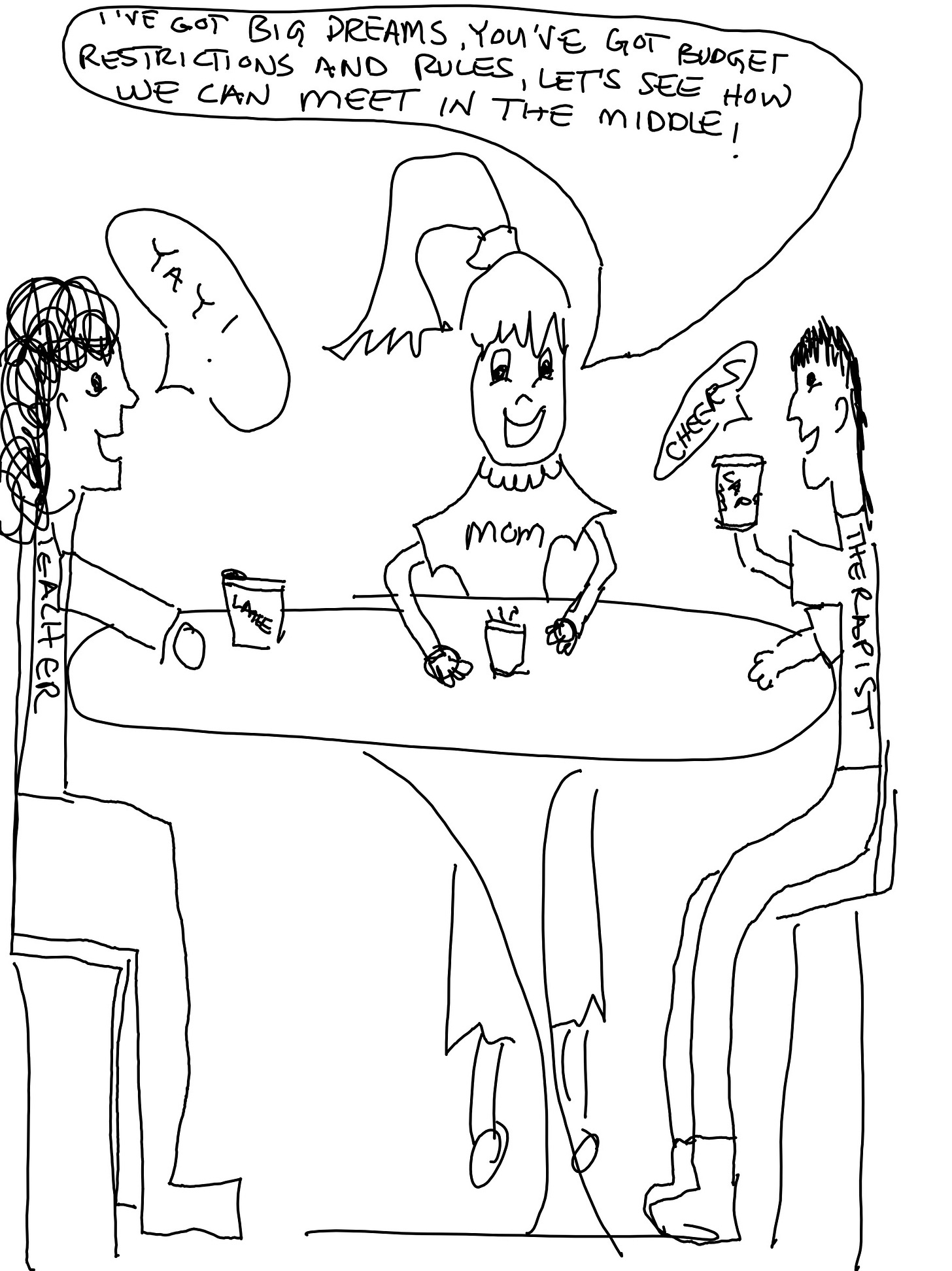The Elusive Art of the IEP Part 1
Going in guns blazing or a more peaceful approach? What is most effective?
As a (mostly) nonconfrontationist, the above approach makes me feel uneasy. For a long time, I thought that in order to be a good advocate for my disabled kids, I had become an expert in the law, find skilled advocates, and go to battle. I thought I had to be a lawyer, speech giver, soap box stander…fierce. Now I think sometimes (not all the time) there’s another way.
For those of you who are skilled in the fiery advocate arena, this isn’t me throwing shade (do people still say this? did they ever?)
Don’t let me drizzle on your rizzle (is this a thing?)
For the rest of us, I like to use what I call the “IEP meeting over a cup of coffee” approach. And no, I’m not joking.
One: De-defensive the other side of the table. Teachers and therapists are usually on the defensive…for good reason. It is based on their past experiences. My first goal going into a meeting is to help us all find REGULATION. It’s impossible to collaborate if anyone is on the defensive. Or if I’m crying and begging them to get rid of a color goal. No one is going to be able to focus on writing good goals if their bodies trip into fight or flight.
I (now) believe that the vast majority of school educators love and want good for kids. Our “good” may look different and that’s where we strive to find common ground over time.
Just like in S2C where we wouldn’t approach an issue head on because it’s disregulating, we can give a sideways glance to the IEP meeting, at least in the beginning..
At the start of the meeting, I try to acknowledge what we all know is true. “Teachers, therapists, you all do such hard work and are underappreciated. Thank you! I am so grateful for the option not to homeschool!” (Which I have done - props to all you homeschooling parents and caregivers out there). Sometimes I do even bring coffee.
Two: Most of the time, real change takes time. This one is hard for me. I want people to immediately see what I know is true.
But asking a special education teacher to immediately believe that your nonspeaker is intellectually competent and maybe even gifted before they even know them is a little like asking an atheist to come to Christ, shout hallelujah, and then risk their lives being a missionary. They aren’t going to do it just because you tell them to (at least not that I know of).
True knowledge and understanding, the kind that causes someone to cry when they see a nonspeaker spell openly on a Letterboard, can’t be bullied or shoved into or onto someone. It has to be discovered - by that person.
Bit by bit, piece by piece, in a way that is personal and applicable to the discoverer.
Three. Don’t throw all your cards on the table. The tendency, for me at least, is to want to show or tell the highest level of fluency my nonspeaker has mastered in order to show they are competent. “She knew what NASA stands for and spelled it on the 26 board!” “He knew what DNA stands for…it was a blue question…I didn’t even know that!” While this may make others in the spellerverse smile and cheer; these words fly right past most people, and make us look like delusional babbling heads.
In most instances, I believe an educator will be able to attach much more meaning to a totally accurate, clearly purposeful spell word or green question - even on the three boards.
These crumbs are key to the start of the exploration. The discovery has to begin at a believable point for people.
To Be Continued…







Excellent. I appreciate this so much. How many of us jumped onboard, all in, the first time we heard about this? I love that you see another side to this, acting as a liaison as much as an advocate.